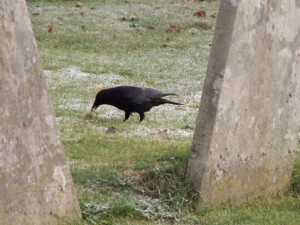Nature in Ryde Cemetery – January 2009
After all the bitterly cold weather Janette and I were relieved to see the sunshine and feel a warmer temperature when we embarked on our January nature walk in Ryde Cemetery.
We didn’t expect to find many changes in flora since December and imagined that the unusual amount of frost we have had lately would have stunted any attempts at growth. We only found one patch of primrose in bloom and one clump of snowdrops.


However there was a promise of spring from the many areas of shooting daffodils and the large expanse of wild garlic leaves near Pellhurst Road.
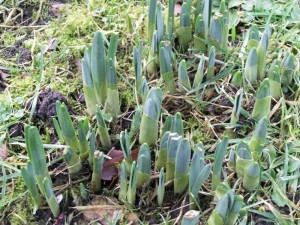
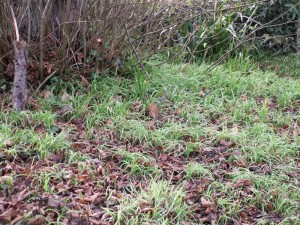
Across the cemetery the many Christmas wreaths on graves looked as fresh as the day they had been placed. The holly, fir, bay and laurel foliage, mixed with cones, cinnamon sticks and added splashes of red and white from ribbon and silk flowers looked very attractive and help to lift the winter gloom.


The ivy berries are now a rich ebony colour. Once used as a remedy for rheumatism they are usually abundant at this time of year which was fortunate as rheumatic conditions often worsen in colder, damper weather.
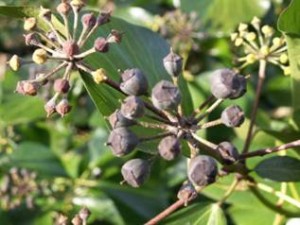
The Friends of Ryde Cemetery Clearance Group has been very busy over the last month. One pile of cleared overgrowth near the south wall was still displaying some wonderful deep pink bloom.

Desperate to find something to write about we turned our attention to lichen which is evident whatever the weather. In fact lichen experts will explain how this difficult to classify organism, is an extremely successful partnership between fungus and algae and can thrive in the coldest polar, hottest/driest desert, wettest tropical and volcanic conditions. Latest research suggests lichen can even survive in outer space!
As there are more than 1,700 species of lichen in Britain they are difficult to identify. We thought that the black lichen surrounding this headstone resembled theatrical stage curtains but unfortunately the lichen picture I found that looked most like it was labelled ‘unknown black!’
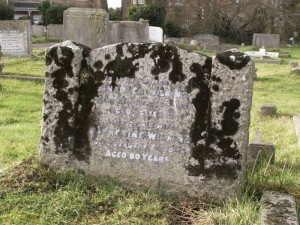
I think the yellow one (see photograph) may be a crustose encrusting type, very common to churchyards!

Any lichen experts out there we welcome your assistance.
February may also be a desperate nature trail where we resort to commenting on this tricky species.
We found evidence of animal activity in various holes where someone had been digging.
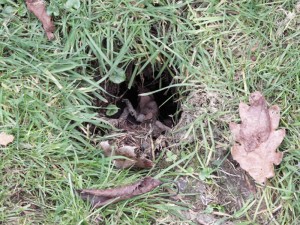
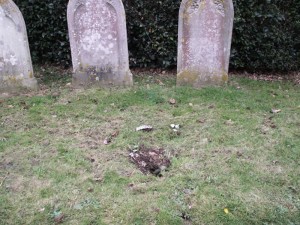
There were a scattering of birds foraging in the grass and we did spot a jay although he spotted us too and quickly flew off. (see google image)

As we concluded our walk and just before the camera batteries ran out we saw a beautiful Red Admiral who posed for us on a kerbstone.

Many trees although they look wintery bare have new buds and high up nests are waiting for repair or rebuilding so spring is on the way.
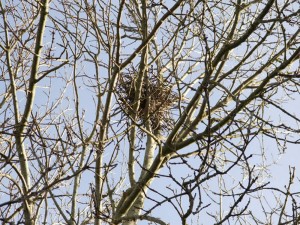
Lichen information from www.countrysideinfo.co.uk
Kate MacDonell
17 January 2009
More nature photographs:

Bark of a willow tree
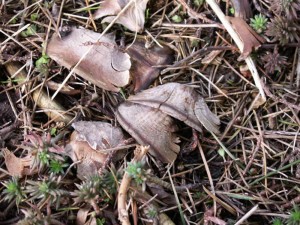
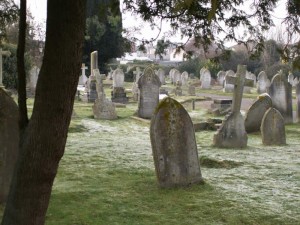
Frost

